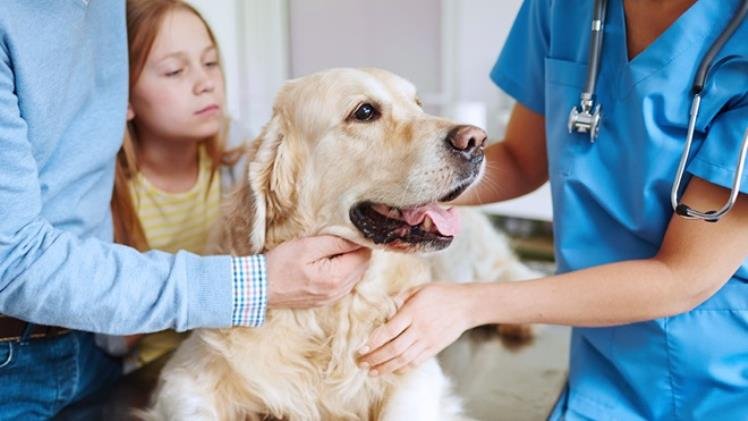If you’re a pet owner, you know accidents and emergencies can happen at any time. That’s why it’s important to understand the ins and outs of pet insurance and emergency care. In this article, we’ll guide you through the basics of pet insurance, the benefits it provides for emergency care, and the factors to consider when choosing a policy. Discover how pet insurance can help cover those unexpected veterinary costs and find the right policy for your furry friend.
Understanding the Basics of Pet Insurance
If you’re considering getting pet insurance, it’s important to understand the basics of how it works. Pet insurance is a type of insurance that helps cover the cost of veterinary care for your furry friend. Just like health insurance for humans, pet insurance provides financial protection in case your pet gets sick or injured.
The way pet insurance works is quite simple. You pay a monthly or annual premium to the insurance company, and in return, they help cover the cost of your pet’s medical expenses. When your pet needs veterinary care, you’ll typically pay the vet upfront and then submit a claim to your insurance company for reimbursement. The insurance company will review the claim and reimburse you for the eligible expenses, minus any deductibles or copays.
Dog Food Importance in Overall health
Dog food you choose can have a significant impact on your dog’s health. Dogs need a well-balanced diet to thrive. Ensure that the dog food you select meets the nutritional requirements for your dog’s life stage (puppy, adult, senior) and size (small, medium, large). Look for products labeled as “complete and balanced” by organizations like the Association of American Feed Control Officials (AAFCO) like yumwoof dog food reviews.
It’s important to note that pet insurance usually doesn’t cover pre-existing conditions, so it’s best to enroll your pet when they’re young and healthy. Additionally, most policies have waiting periods before they go into effect, so it’s a good idea to sign up for pet insurance before your pet needs medical attention.
Understanding the basics of pet insurance can help you make an informed decision about whether it’s right for you and your pet. It provides peace of mind knowing that you can give your pet the care they need without worrying about the financial burden.
The Benefits of Pet Insurance for Emergency Care
Having pet insurance can provide you with the peace of mind and financial protection you need in case of a pet emergency. When your furry friend suddenly falls ill or gets injured, the last thing you want to worry about is the cost of their treatment. That’s where pet insurance comes in handy. Here are three benefits of having pet insurance for emergency care:
- Financial Assistance: Pet insurance can help cover the costs of emergency veterinary care, including hospital stays, surgeries, medications, and diagnostic tests. With insurance, you won’t have to make difficult decisions based on your budget. Instead, you can focus on getting the best care for your pet without financial stress.
- Access to Specialists: In an emergency, your pet may require specialized care from veterinary specialists. With pet insurance, you’ll have access to a network of experts who can provide the necessary treatment. This ensures that your pet receives the highest level of care possible, increasing their chances of a successful recovery.
- Preventive Care Coverage: Some pet insurance plans also include coverage for preventive care, such as vaccinations, annual check-ups, and dental cleanings. By taking advantage of these benefits, you can keep your pet healthy and potentially prevent emergencies from occurring in the first place.
Factors to Consider When Choosing a Pet Insurance Policy
When choosing a pet insurance policy, you should consider the coverage options and the deductible amount. Coverage options refer to the specific services and treatments that are included in the insurance plan. Some policies may cover only accidents and illnesses, while others may also cover routine care such as vaccinations and dental cleanings. It is important to carefully review the coverage options to ensure that they align with your pet’s needs.

The deductible amount is the portion of the veterinary bill that you are responsible for paying before the insurance coverage kicks in. Generally, a higher deductible will result in lower monthly premiums, but you will have to pay more out-of-pocket when your pet needs care. Conversely, a lower deductible will result in higher monthly premiums, but you will have a smaller out-of-pocket expense when your pet needs care.
To help you compare different pet insurance policies, here is a table that outlines some important factors to consider:
| Factor | Description |
| Coverage | What services and treatments are included in the policy? |
| Deductible | How much do you have to pay out-of-pocket before the insurance coverage starts? |
| Premium | How much is the monthly or annual cost of the insurance policy? |
| Waiting Period | How long do you have to wait before the coverage begins? |
| Claim Process | How easy is it to file a claim and get reimbursed for veterinary expenses? |
How Pet Insurance Can Help Cover Emergency Veterinary Costs
Pet insurance can provide financial assistance when your pet experiences emergency veterinary costs. Here are three ways pet insurance can help cover these unexpected expenses:
- Reimbursement for veterinary fees: When your pet requires emergency medical treatment, the costs can quickly add up. With pet insurance, you can submit a claim for reimbursement of eligible veterinary fees. This can include diagnostic tests, surgeries, medications, and hospital stays. Depending on your policy, you may receive a percentage of the total cost back, helping to alleviate the financial burden.
- Coverage for emergency procedures: In an emergency situation, your pet may need immediate surgery or specialized procedures. Pet insurance can help cover the costs associated with these procedures, ensuring that your pet receives the necessary care without worrying about the financial implications. This can provide peace of mind during a stressful time.
- Access to emergency clinics and specialists: Some pet insurance policies offer coverage for emergency clinics and specialists. In the event of an emergency, you can take your pet to a specialized facility that is equipped to handle critical cases. Having this coverage can make a significant difference in your pet’s outcome and overall experience during an emergency situation.
Tips for Finding the Right Pet Insurance Policy for Your Pet
If you’re considering pet insurance, but don’t know where to start, a great tip is to compare different policies and providers to find the right one for your pet’s needs. Pet insurance can provide peace of mind and financial security when it comes to your furry friend’s health. With so many options available, it’s important to do your research and find a policy that suits your pet’s specific requirements.
Start by gathering information about different insurance providers. Take note of their coverage options, deductibles, and premium costs. Look for policies that cover accidents, illnesses, and routine care, as well as any specific conditions or treatments your pet may require.
Next, compare the benefits and limitations of each policy. Some insurance plans have waiting periods before coverage starts, while others may have exclusions for pre-existing conditions. Consider the maximum benefit limits, reimbursement percentages, and whether the policy covers specialist care, prescription medications, and alternative therapies.
It’s also crucial to read reviews and testimonials from other pet owners who have experience with the insurance providers you’re considering. This can give you valuable insights into their customer service, claims process, and overall satisfaction.
Finally, don’t forget to consult with your veterinarian. They can offer recommendations based on their experience with different insurance companies and policies. They may have insights into which providers are more likely to have a smooth claims process and provide prompt reimbursement. You should also check the bark potty review!
Conclusion
In conclusion, it is important to understand the basics of pet insurance and the benefits it can provide for emergency care. By considering factors such as coverage limits, deductibles, and waiting periods, you can find a policy that suits your pet’s needs. Pet insurance can help alleviate the financial burden of emergency veterinary costs, ensuring that your furry friend receives the necessary care without breaking the bank. Take the time to research and compare different policies to find the right one for your pet.



